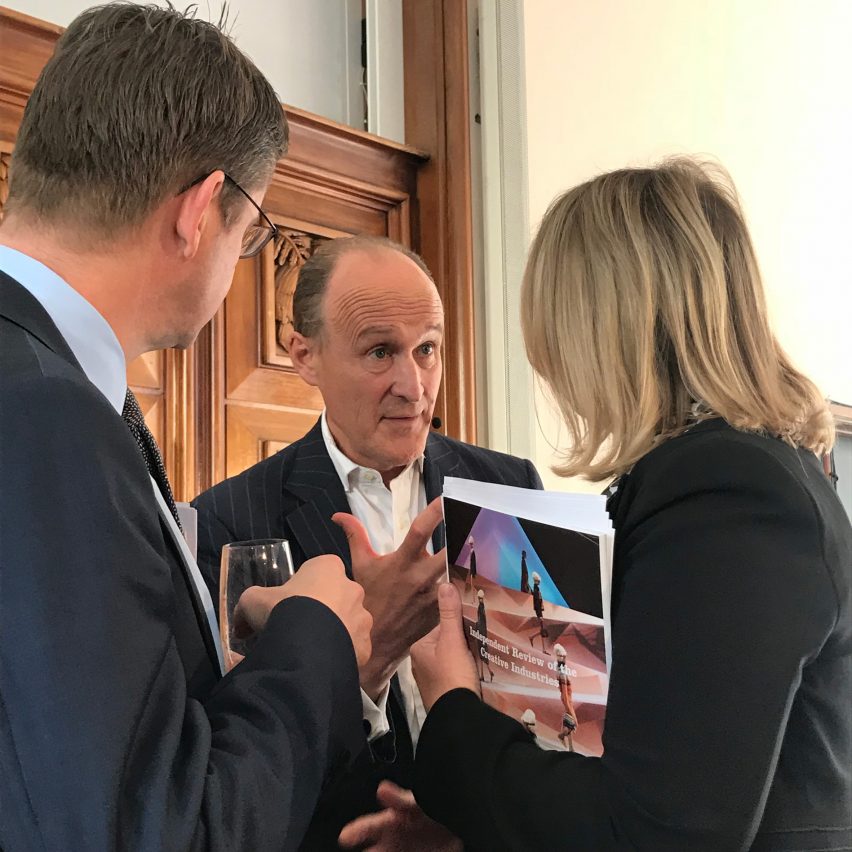
Creative careers seen as "worse than drug dealing or prostitution" says Peter Bazalgette
The UK government should fund the development of creative clusters around the country to make the creative industries less London-centric, less white and less middle class, according to an independent review of the sector conducted by TV executive Peter Bazalgette.
Launched today, the Independent Review of the Creative Industries aims to give government proposals to ensure the sector continues to grow after Brexit.
"Forty five per cent of the creative industries are in London and the south east and I want that to go on growing strongly," Bazalgette said at the launch of the report.
"The problem in this country is not that London is too big but that other places are too small."
He added: "In France, Germany and Italy, the secondary cities are much bigger than ours. We have this challenge to grow our economy, in fact grow our society, outside London and the south east. We've got to grow the creative industries outside London."
Bazalgette's key proposal is for the government to support regional growth through a £500 million Creative Clusters Fund. Regions outside London could bid for cash to fund development of their creative sectors.
This could help the sector become more diverse, Bazalgette said.
"There's been a lot of talk recently about the diversity of our industry," he said. "Our industry is too white very often and too middle class very often. We are missing out on the creativity of many communities and we are not at our best if we have not got the participation of all talents across the country."

Other recommendations include a strategy to encourage young people to consider careers in the creative industries, and a review of the research and development tax credits to encourage more creative businesses to take advantage of the scheme, which allows businesses to claim back tax against money spent on research.
"We need a proper creative industries careers programme that properly explains what the possibilities of a creative career are, and it needs to be aimed not just at teenagers but also at parents," Bazalgette said.
"If you were a kid from a deprived background and your parents were ambitious for you the last thing they'd want you to do is go into the creative industries.
"They'd regard it as worse probably than drug dealing or prostitution. Why would that be? Because it doesn't look like a proper career path. We in this room know it's a proper career path but I don't believe we've properly communicated it. "
In its submission to the review earlier this year, Dezeen called for R&D tax credits to be expanded so that all creative work that generates intellectual property can quality. A report published last year found that nine out of ten creative businesses were failing to take advantage of the scheme.
Bazalgette believes that if the government follows the advice set out in the report, the creative sector could generate an additional £128.4 billion by 2025 and a million new jobs by 2030.
The government commissioned Bazalgette to write the report after identifying the creative industries as one of five growth sectors that deserve special support as part of its industrial strategy.
"The UK is the third largest exporter of creative services after USA and China," said culture secretary Karen Bradley at the launch, which was held at the RIBA in London.
"Whether music, film or design, our creative industries are at the forefront of how the world sees us. They strengthen the UK brand."
Last year, Dezeen's Brexit Design Manifesto set out how the sector could help the UK after Brexit. "Design is one of our nation's greatest strengths and plays a key role in the 'soft power' we project overseas," the manifesto stated.